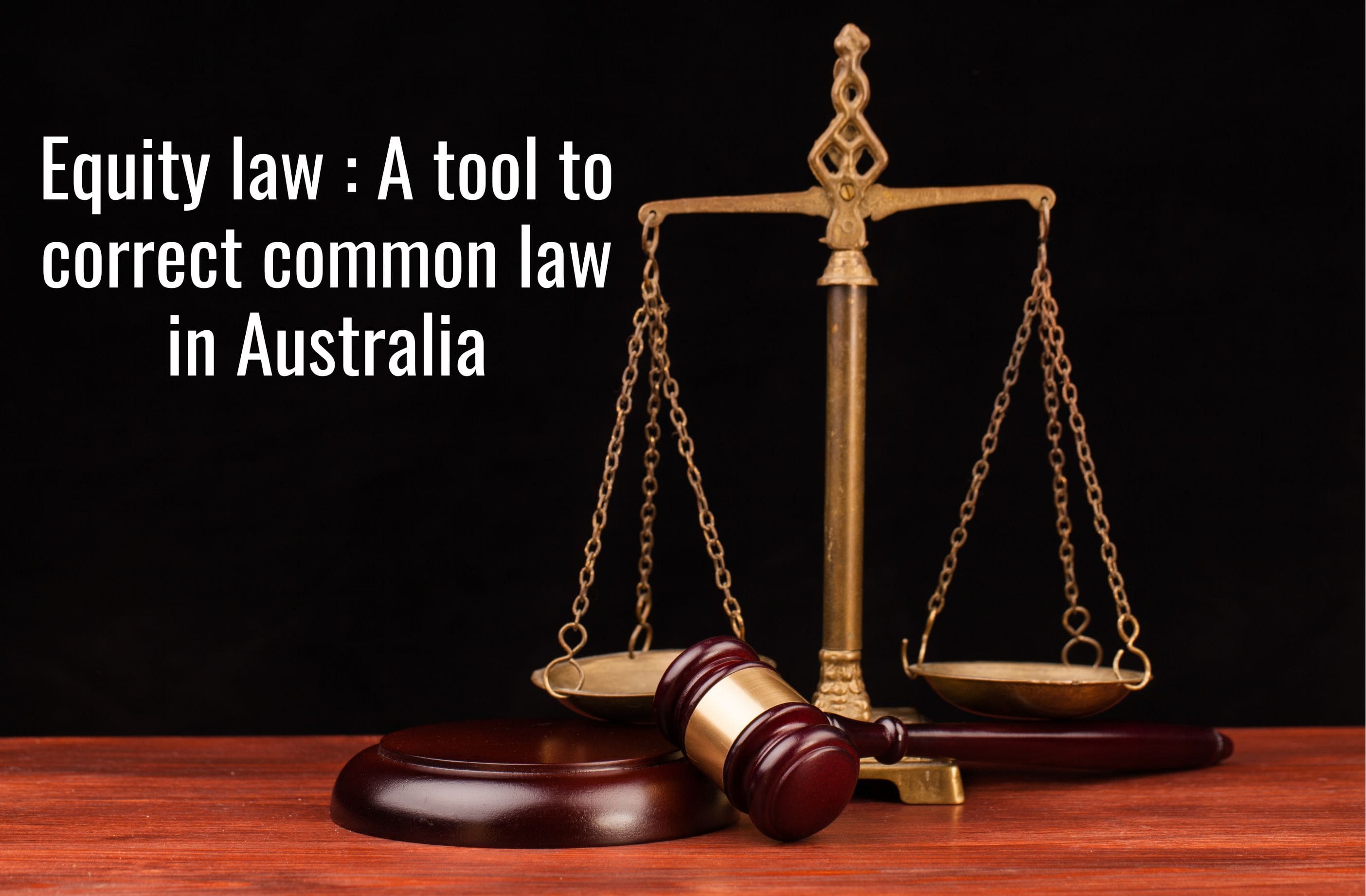Equity law: A tool to correct common law in Australia
The English common law that Australia inherited from Britain and the numerous statutes that have been passed by the various state and federal governments since the federation make up the legal system in Australia. As society changes and new interpretations are produced in response to these changes, case law, or the laws that judges interpret, changes with time. The laws enacted by state and federal legislatures are subject to democratic principles. Elections determine the structure of parliaments, and often, various political parties have varied views when it comes to enacting legislative reforms. Every time a new government is elected, it would be impossible to make significant and immediate changes to the law. In reality, most laws are kept in place, and new laws frequently take a long time to become law and may never do so because of the checks and balances found in bicameral (two-chambered) parliaments.
How equity law is beneficial for understanding common law in Australia?
The sense of justice and fairness is equity. When a law is incorrect, equity corrects it, or we might say equity corrects common laws. Equity-based on conscience is when you consider what is right and wrong. For instance, if a powerful person hits a weak person without cause, you might feel sympathy for the victim and know in your heart that the strong person is wrong. Then, you might want to seek justice for the weak person. This feeling of justice is based on the natural justice principle. The court of chancery was the one that drafted this law.
The goal of equity law is to lessen the unfair effects that the common law's stringent and rigorous standards have on individuals. This statute guarantees justice for erroneous judgments. By the middle of the 13th century, common law was administered in England; some of its components were statute law and some were based on custom. Customary law was entirely unwritten, incredibly adaptable, and mostly accepted by those who uphold it.
Writing an equity law assignment is difficult because it necessitates a thorough awareness of legal situations, issues, and conditions, which can only be accomplished by conducting extensive legal research when working on the equity law assignment. For more than 12 years, australialawwriters.com have been offering equity law writing services to students studying law in Australia and all over the world. To write the assignments for you that will earn you distinctions on your law exams, quizzes, semester, homework, or lecture writing services, we have qualified lawyers with expertise in equity law. Get the grades you want without having to write a single word yourself by having the top equity law assignment help writers complete your paper for you. Use the best writing services for equity law assignment help available.
For most students, writing a paper on equity law is probably the worst thing they have to do. Assignments in equity law are more difficult than others since students must use all of the knowledge they have learned in class. It is difficult to meet the requirements for writing assignments on equity law.
Throughout the first few years of a student's education, it gets increasingly difficult to understand things clearly and to find the right explanation for events. Since the topics are so vast, equity law assignments require a lot of research, and the students must deal with time constraints because they have so many other responsibilities. It may be challenging in some projects to get all the information for the equity law assignment help from legitimate, official sources. Students sometimes give up on quality after working so hard in the beginning because they get frustrated and think the process is monotonous. This frequently increases the likelihood of earning subpar grades, which is something that no student wants to happen.

